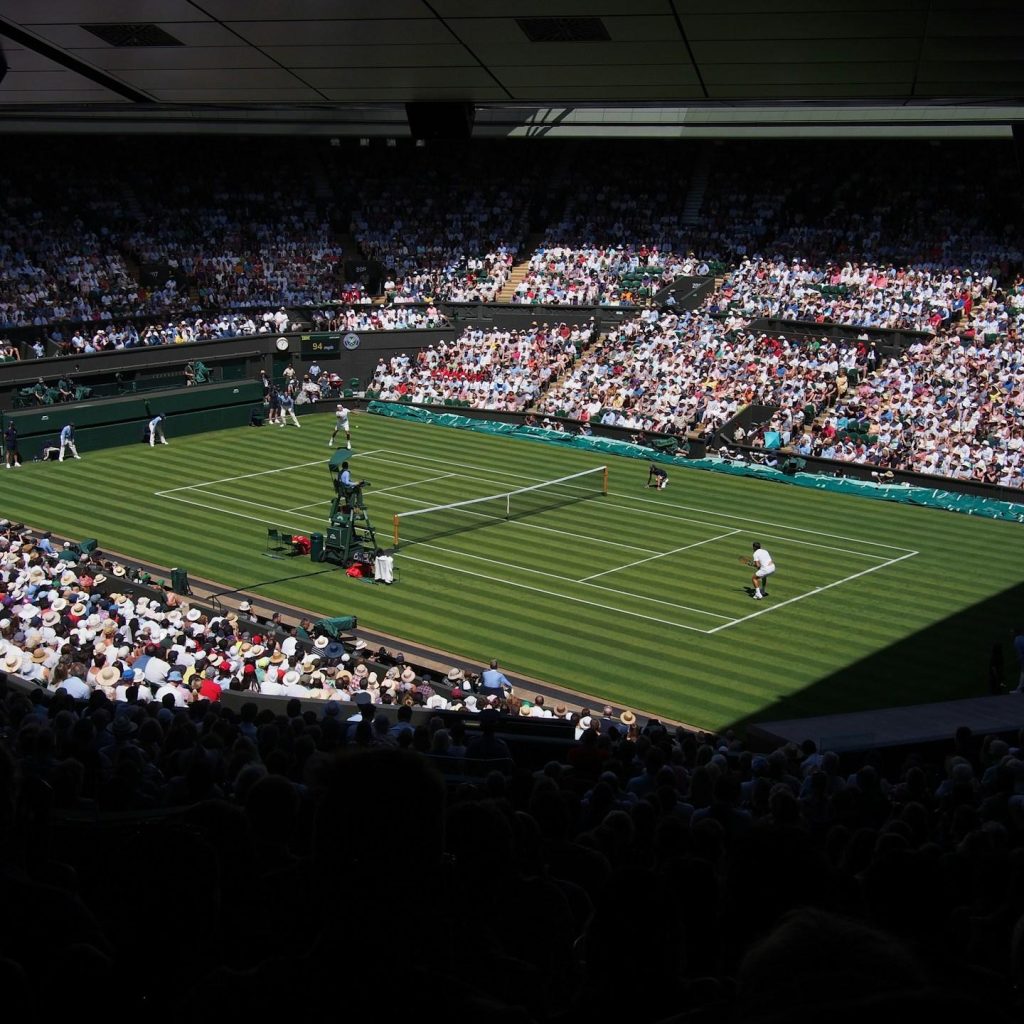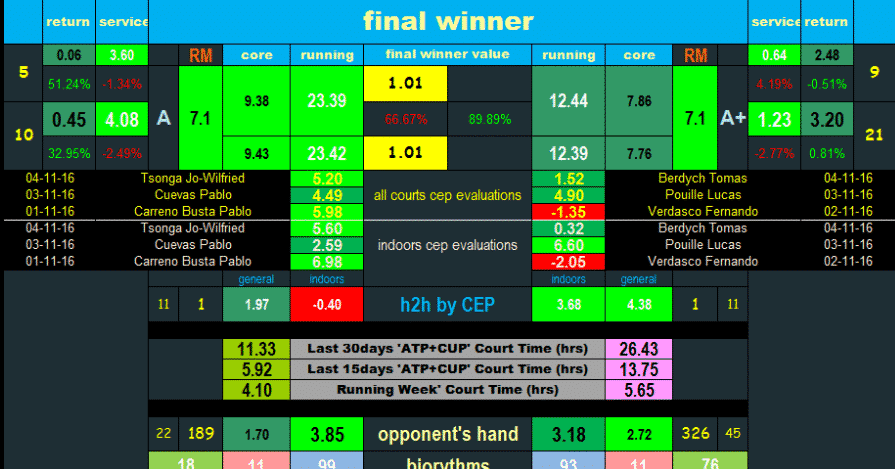Tennis Tips UK provides tennis betting picks focusing on ATP match winner markets to club members. They receive frequent emails direct to their inbox stating the advised bet with reasoning. This service has operated for over a decade and records all selections via the spreadsheet linked above for transparency. All that’s required is a bookmaker and/or exchange account. Synopsis of overall results provided below.
| Profit (units) | Yield (%) | Strike Rate (%) | Average Odds (Decimal) | Illustrative Return (£100 staked per pick) |
| +65.40 | 23.40 | 33.70 | 4.51 | £6540 from backing every selection as of July 2025 |
- ✅ WON @ 2.12 (+112) | J Duckworth | ATP Los Cabos£100 stake backing Duckworth to beat Mannarino returned £109.76 profit… Read more: ✅ WON @ 2.12 (+112) | J Duckworth | ATP Los Cabos
- ✅ WON @ 8.20 (+720) | A Magadan | ATP Los Cabos£100 stake backing Magadan to beat Lajal returned £705.60 profit… Read more: ✅ WON @ 8.20 (+720) | A Magadan | ATP Los Cabos
- ✅ WON @ 10.91 (+991) | T Baadi -1.5 | ATP Los Cabos£100 stake backing Baadi to beat Uchiyama in straight sets… Read more: ✅ WON @ 10.91 (+991) | T Baadi -1.5 | ATP Los Cabos

Table of Contents
- What is Mental Toughness in Tennis?
- Why Mental Toughness Matters
- How to Develop Mental Toughness
- Focus on What You Can Control
- Develop Routines
- Practice Positive Self-Talk
- Visualize Success
- Breathe Deeply
- Embrace the Challenge
- Learn from Losses
- Seek Support
- Tennis Legends with Steel-Trap Minds
- Winning the Mind Game
- Turn Pressure Into Fuel
- Conclusion
If you’ve ever watched a nerve-wracking fifth-set tiebreaker, you know that tennis isn’t just about hitting great shots; the mental game is just as crucial – maybe even more so. Mental toughness is the intangible quality that lets players stay calm in the face of pressure, fight for every single point, and recover quickly from setbacks. It’s what separates champions from the rest of the pack.
In this article, we’ll dig into mental toughness in tennis. We’ll look at what it is, why it’s so important, and – this is the best part – how you can develop it for your own game. Let’s get started.
What is Mental Toughness in Tennis?
It’s not about being emotionless. Mental toughness in tennis is about having a strong mindset. It means:
Staying positive and focused: Even when things aren’t going your way. Playing your best under pressure: Not letting your nerves get the best of you. Bouncing back quickly: After a bad point, a lost game, or even a tough loss. Staying motivated: When practices are grueling or the results aren’t coming fast enough.
Why Mental Toughness Matters
Talent can take you far, but it might not be enough to win consistently – especially as you move up the ranks. Mental toughness is the X-factor that can differentiate a good player from a truly great one. It gives you an edge when:
Matches are tight: The pressure’s on, and mistakes can creep into anyone’s game. Mentally tough players keep their cool and play with confidence. Opponents are playing well: You can’t control how the other person plays. But you can control how you react, keeping your focus on your own game. You’re facing adversity: Whether it’s a bad line call, an injury, or just a slump in form, a strong mind helps you push through challenges.
How to Develop Mental Toughness
The good news? Mental toughness isn’t something you’re born with. Like those awesome backhand shots you’ve been practicing, it’s a skill you can build with training:
Focus on What You Can Control
Instead of fretting over the weather or your opponent’s ranking, focus on your serve, footwork, and strategy. This channels your energy productively.
Develop Routines
Rituals and routines – like bouncing the ball the same way before your serve – create a sense of control and reduce anxiety.
Practice Positive Self-Talk
Catch those negative thoughts (“I always mess this up”) and flip them to something positive (“I’m getting better at this every day”).
Visualize Success
Before significant matches, see yourself in your mind’s eye playing confidently and winning. This trains your brain to anticipate success.
Breathe Deeply
Slow, deep breaths calm your nervous system and help you refocus. A simple “inhale, exhale” during changeovers can do wonders.
Embrace the Challenge
See tough matches as a chance to prove yourself, not a reason to panic. A bit of healthy competitive fire goes a long way.
Learn from Losses
Even the best players lose sometimes. Analyze what went wrong, learn the lessons, and move on. Dwelling on setbacks only weakens your resolve.
Seek Support
A coach, sports psychologist, or a supportive tennis buddy can offer advice, encouragement, and help keep you accountable.
Tennis Legends with Steel-Trap Minds
Want some inspiration? Look no further than the greats:
● Rafael Nadal: Known for his tenacity – he never gives up on a single point.
● Serena Williams: With her powerful game and fierce competitive spirit, she intimidates many opponents before they even step on the court.
● Novak Djokovic: Even after a frustrating point, he visibly calms himself down and rebounds quickly.
Looking at how these legends play will clue you in to the power of a strong mental game.
Winning the Mind Game
Mental toughness isn’t built overnight, but with work, you can develop a resilient mindset. Remember, tennis is just as much a mental battle as it is a physical one. By understanding those tennis odds, staying focused on the present moment, and believing in your ability to overcome challenges, you’ll be amazed at how your game can improve.
Turn Pressure Into Fuel
High-stakes matches are bound to bring on a wave of nerves. But instead of letting the pressure paralyze you, learn to use it to your advantage. Here’s how to turn that adrenaline rush into focused intensity:
● Accept the nerves: It’s natural to feel nervous before big matches. Trying to fight the feeling can make it worse. Acknowledge the nerves and then shift your attention to your game plan.
● Reframe the situation: Instead of thinking, “I can’t handle the pressure,” tell yourself, “I’m excited for this challenge.” This changes your mindset from fear to opportunity.
● Use your body: When you feel tense, physically shake it out. Take a few quick jogs in place to release some of that pent-up energy.
● Focus on the process: Don’t get caught up in the match’s potential outcome. Focus on executing your shots, sticking to your strategy, and playing with aggression.
Remember, pressure is a privilege on the tennis court. It means you’re in a position to compete for something important. Channel that energy into your game, and you might be surprised by how well you perform.
Conclusion
Master your mind, and you’ll find yourself winning more matches and enjoying tennis even more. So, what are you waiting for? Start putting these mental toughness tips into practice today and see the results on the court
What is the purpose of club membership?
Most members use the advisory to generate profits via bookmaker and/or exchange accounts. For someone staking £100 per match this has yielded thousands in profit even once the annual membership fee is deducted.
Will bookmakers limit my account(s)?
Most likely, yes. Club bets have a proven track record of value (+ EV) and bookmakers are likely to notice this. Short term you’ll be fine but longer term we suggest using betting exchanges or ‘winners welcome’ bookmakers or brokers. That’s why we always quote and record odds from Betfair Exchange or Pinnacle for members as that illustrates profits for those who are limited elsewhere.
How will it work after joining?
Your membership will be confirmed with a personal welcome email. You’ll get one month of access per payment. You should expect an average of two emails per week detailing the advised selection, match, tournament and odds. Simply login to your betting account and place a wager on the selected market. We only use standard match winner bets, often referred to as the moneyline, and set handicap markets so coverage is extensive at virtually all betting portals. Have any questions? Please visit the contact us page. Average response time 24h.
Is club membership limited?
Yes, we allow a maximum of ten members to have an active memberships at any one time. This is to preserve value and market liquidity. Essentially ensuring it’s practical to obtain the advised odds without them disappearing too quickly.
What bankroll is required?
We suggest £10,000 or more ideally although smaller can work. Most members choose to follow our advice of staking 1% per match. This means it automatically adjusts and scales as the total grows and compounds returns. In the above example; the member would have yielded over £3,000 profit but had to pay the membership fee leaving them with a net profit in excess of £2200. Some members have vastly exceeded this by staking higher amounts but please remember to have a long term focus and ensure capacity for successive losses.
What type of bets should I expect?
Always match winner (moneyline) bets covering men’s professional tennis. This includes ATP events, Challenger and Grand Slams. We specialise in high odds underdogs which have yielded the most considerable profits in extensive back testing. Tennis betting picks in the 5.00-10.00 odds range are common with a minimum level of EVENS (2.00). We deliver advisory emails at a consistent time with a minimum of six hours before the scheduled start time to ensure plenty of time to get bets placed.
Who is the club open to?
Everyone with a decent bankroll and a long term outlook. We have members from around the world betting in many different currencies and jurisdictions. Tennis Tips UK are based in the United Kingdom, hence the name, but the club is truly global. Please note while the default currency is pounds – the checkout page also permits dollars or euros. These should be presented as an option or automatically switched based on your location. It’s also possible to pay in other currencies using the exchange rate for that day.
How is profit tracked?
For transparency we operate a public spreadsheet. This shows all key metrics such as units profit, ROI, yield and strike rate. We even monitor the Avg Diff CO % for those statisticians amongst you. In a nutshell this measures the implied value by comparing the advised odds with the sharp closing line. 2% is deducted from all recorded profit figures to simulate exchange commission. Just to clarify bets are only added to the spreadsheet post result confirmation to retain exclusivity of access to paid club members.
For winning bets our team also publish profit reports which feature the original email sent to members for additional tracking and verification purposes. This also includes a rating for that specific prediction which gives an insight into how our strategy is optimised over time.
Who picks the bets for club members?
Tennis Tips UK have grown into a small team over the years. Founded way back in 2013 by an odds compiler at a leading EU bookmaker. Since then joined by a quant and business manager. Each one of us lives and breathes tennis but we like to let our results speak for themselves rather than make outlandish personal claims.
Why don’t you bet on your own picks if they are so good?
We do, frequently. The issue surrounds liquidity and limitations. Club members have access to a wide range of liquidity from global sportsbooks and exchanges. We, as individuals, are far more restricted. Typically though we still stake an average of £10k per week on our selections but unfortunately virtually every bookmaker has long since banned us. We should take it a compliment really as a limitation is an endorsement of the profitability of your bets from an often billion pound institution.
Is there a way to reduce the cost of membership?
The fee is set at a level which allows us to fill membership places. If you are a prospective first time club member enter the promo code ‘NEWCLUB10’ during checkout to reduce the cost. Please note this is a one time discount and not available for returning members.
Since 2013 we have actively built, deployed, maintained and optimised a tennis betting data model. This serves as the foundation of our team’s analysis. We don’t rely on it entirely but it gives a reliable indication as to where the price for a specific player should be. Significant discrepancies between this and actual live market prices across bookmakers and exchanges often flag our attention for further research.
No. When a specific bet is advised our team are stating there is value in the quoted odds. In other words the true probability of that outcome is higher than the implied figure derived from market odds. Long term backing these bets consistently will deliver considerable profit as our results illustrate. However members should be prepared to lose successive bets frequently as the club focuses on significant underdogs. Sometimes a large percentage of annual returns can come from a single selection.
This is one of the key reasons that the club is now so focused on long term members and making that clear upfront. It was very frustrating to see some join for just a few weeks, lose bets then leave. This benefits nobody. New members should adopt a disciplined bankroll management strategy. The most common is simply staking 1% total bankroll per match. If a handful of consecutive losses would cause terminal bankroll damage then stakes need reducing.
This was a real email sent to club members. It may look a little intimidating initially but the selection in bold is the only essential piece of information to profit. We operate a simple staking strategy of 1 unit = 1% total bankroll. Each email consists of the tournament, match, selection, advised stake, minimum odds and projected win probability. This format will always be followed for consistency. 
No – you can leave at any time. When you take out a subscription this grants 30 days of email betting tips. Once this has expired it will automatically renew on a monthly basis. However you are always in control. Tennis Tips UK have setup a customer portal with our payment provider. This lets members manage their subscription at any time. So you can update payment methods or cancel entirely without any input needed from our end. We even send a reminder for every upcoming payment confirming the amount and date so no nasty surprises. We aim to be transparent and put you in complete control. Please see the terms and conditions page for more information.
Discover more from TENNIS TIPS UK
Subscribe to get the latest posts sent to your email.





